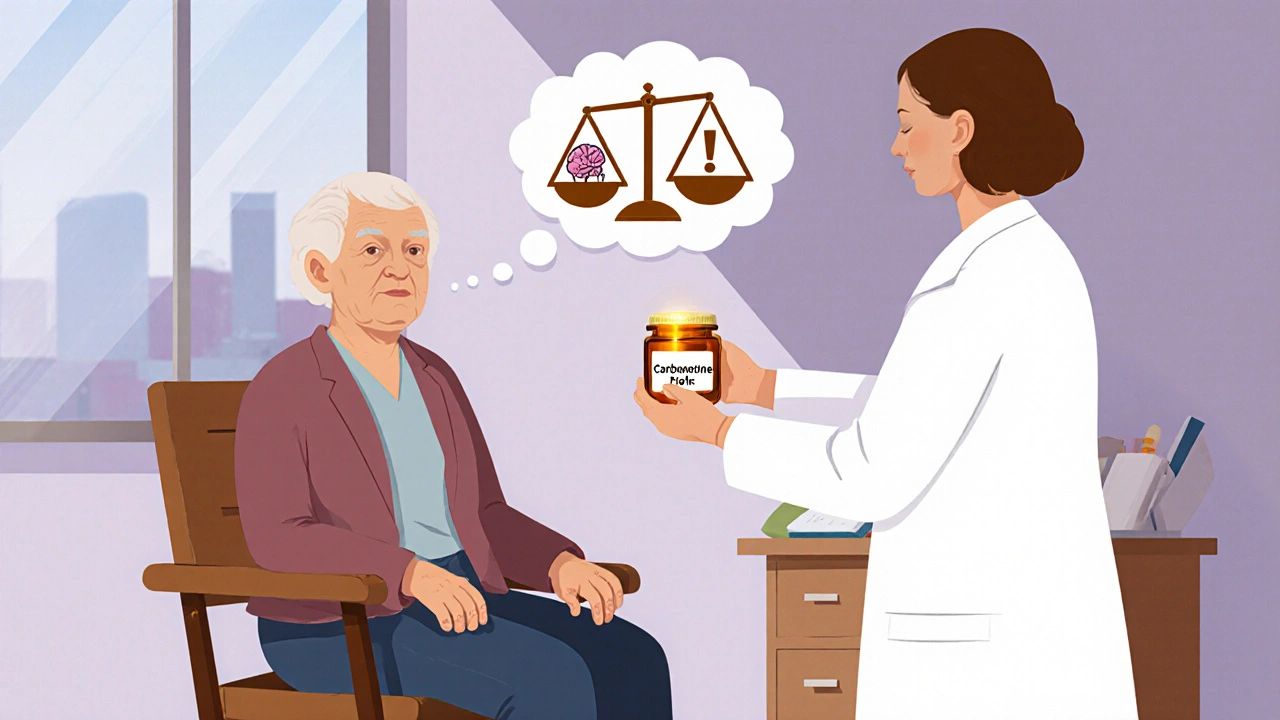Carbamazepine: Uses, Side Effects, and Alternatives You Need to Know
When you hear carbamazepine, a prescription anticonvulsant used to control seizures and nerve pain. Also known as Tegretol, it's one of the oldest and most widely used drugs for epilepsy and trigeminal neuralgia. But it’s not just about stopping seizures—doctors also turn to carbamazepine for bipolar disorder when other mood stabilizers don’t work. It works by calming overactive nerves in the brain, which is why it helps with both electrical spikes in epilepsy and the sharp pain of nerve damage.
But carbamazepine doesn’t work the same for everyone. Some people take it for years with no issues. Others get dizziness, nausea, or worse—like a rare but serious skin reaction called SJS, or low sodium levels that can cause confusion and fatigue. It also interacts with a lot of other meds. If you’re on birth control, blood thinners, or even some antidepressants like desvenlafaxine, an SNRI antidepressant used for depression and anxiety, carbamazepine can make them less effective. That’s why checking with your doctor before mixing it with anything else isn’t optional—it’s critical.
And if carbamazepine isn’t working for you—or the side effects are too much—there are other options. Drugs like lamotrigine, a mood stabilizer often preferred for bipolar disorder due to fewer side effects, or valproate, a broad-spectrum anticonvulsant used for seizures and mood swings, might be better suited. Even newer options like oxcarbazepine, a close cousin of carbamazepine with a lower risk of serious reactions are worth considering. It’s not about switching blindly—it’s about matching the drug to your body’s response.
What you’ll find below are real, practical comparisons and guides based on actual patient experiences and medical guidelines. You’ll see how carbamazepine stacks up against other seizure and nerve pain drugs, what to do if you’re having side effects, and how to avoid dangerous interactions. Some posts talk about managing bipolar symptoms on the job, others warn about skin reactions from long-term use, and a few explain how to travel safely with this controlled medication. There’s no fluff—just clear, no-nonsense info to help you understand if carbamazepine is still the right choice for you, or if it’s time to explore something else.

Carbamazepine Use in Older Adults: Risks, Benefits, and Dosing Guidelines
A practical guide on carbamazepine use in older adults, covering dosing, side‑effects, drug interactions, monitoring, and safer alternatives.
October 22 2025